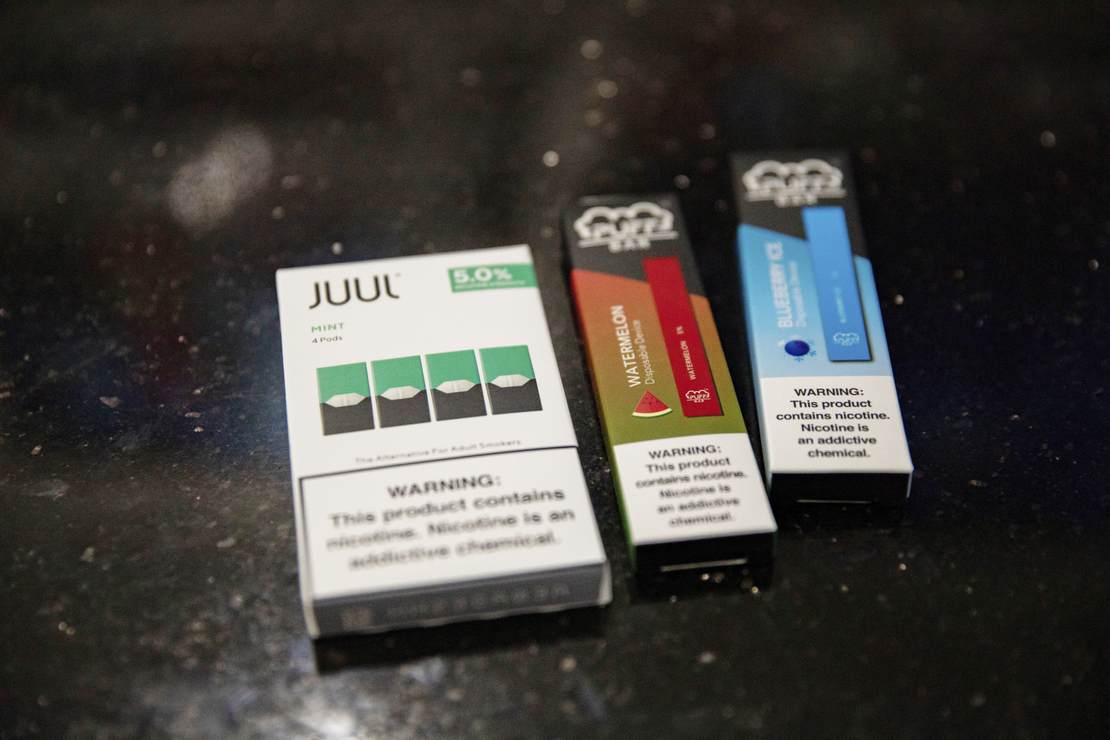
When Juul broke out on the market in 2015 with its flavored vaping products, offered as an alternative to smoking tobacco, it almost immediately surged in popularity. That successful run began to tail off in 2019 as repeated concerns were raised about health issues related to vaping and allegations that the company targeted children with its advertising. The debate over vaping continues to this day, but Juul will reportedly not be part of the conversation anymore. The FDA is reportedly set to ban Juul from selling its products in the United States. (NY Post)
The Food and Drug Administration is set to ban Juul e-cigarettes from being sold in the United States, according to a report.
The Wall Street Journal reported on Wednesday that the FDA could announce the decision as soon as Wednesday.
The agency had been investigating Juul for the past two years while the company sought approval to continue selling its nicotine pods.
Shares of Altria Group, the cigarette maker which owns a 35% stake in Juul, were down by more than 9% as of 12:30 p.m. Eastern time on Wednesday.
While I never took up vaping myself, I was a supporter of the concept for quite some time. It seemed like an effective way for people to give up smoking even if they couldn’t kick their nicotine addiction. And doing without all of the other chemicals that come along with tobacco smoke seemed to be a significant potential improvement even if it was an imperfect solution.
I will admit that repeated reports of new types of lung issues being seen in heavy vapers had me rethinking that position, at least a bit. We could probably consider this an example of the law of unintended consequences. Of course, how much you partake in any habit will be a factor. As the saying goes, too much of anything can be dangerous, even water.
With that said, I have to wonder what impact this decision will have on other bans that have been in the news as well as efforts to help wean people off of tobacco in general. I understand the argument about Juul’s interesting flavors and how they might prove very attractive to teenagers. But keep in mind that the Biden administration recently announced a proposed ban on menthol-flavored tobacco products after a public comment period that ends in early July. Many people who are forced to give up menthol cigarettes were probably considering looking for a menthol vaping alternative. Won’t this double whammy simply drive more of them to the black market to feed their addictions?
There are other “flavoring” regulation debates playing out at the state level as well. Will banning Juul from the shelves impact public opinion on this matter? There’s a potential political aspect to this as well. While smoking rates have continued to decline, of Americans who still smoke, the numbers are far higher among lower-income voters. And in particular, among Black smokers, more than three-quarters smoke menthol brands.
Politicians sometimes trip themselves up when they’re in a rush to make it look like they’re doing something about a major issue. That may happen here. One other point to consider is that Juul’s market share, stock value, and sales were already tanking. This year, Juul’s market valuation was down to $1.6 billion after hitting a peak of $15 billion in 2018. They reported a $259 million loss (instead of a profit) last year. Might the FDA not have simply waited for Juul to die on its own?
Source:





